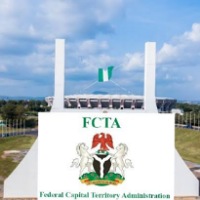Motoring
Ford Planning to Drop Microsoft for BlackBerry in Its Car Technology System
NEW YORK – Ford Motor Co. (F), struggling with in-car technology flaws, will base the next-generation Sync system on BlackBerry Ltd. (BBRY)’s QNX and no longer use Microsoft (MSFT) Corp.’s Windows, according to people briefed on the matter.
Using QNX will be less expensive than licensing Microsoft technology and will improve the flexibility and speed of the next Sync system, the people, who asked not to be identified because the decision hasn’t been made public, said Feb. 22. Ford has more than 7 million vehicles on the road with Sync using Microsoft voice-activated software to make mobile-phone calls and play music.
The switch may help Ford, the second-largest U.S. automaker, address customer complaints about malfunctioning technology systems and touch screens that have hurt it in surveys by J.D. Power & Associates and Consumer Reports. For BlackBerry, it’s a vote of support for a company that lost 95 percent of its value from mid-2008 to November and saw the collapse of a proposed $4.7 billion buyout.
“This would be a huge infusion of trust and confidence to have BlackBerry and QNX expanding into a Ford,” Thilo Koslowski, auto analyst for researcher Gartner Inc. in Santa Clara, California, said yesterday. “This is really the crown jewel in BlackBerry’s crown and could make the rest of the company shine as well.”
Shares Climb
BlackBerry rose 6.6 percent to $9.74 at 9:55 a.m. in New York. Microsoft fell less than 1 percent to $37.85. Ford gained less than 1 percent to $15.20.
Since becoming BlackBerry’s CEO on Nov. 4, John Chen cited software such as QNX and the BlackBerry Messenger service as assets he will look to capitalize on. Predecessor Thorsten Heins spoke often during his tenure for the potential of QNX to play a role in machine-to-machine settings such as cars interacting with parking meters.
Dearborn, Michigan-based Ford has said the quality of its vehicles has been “mixed” each of the past three years and fell short of its plan to improve those results in 2013. CEO Alan Mulally was said to be a candidate to become Microsoft’s chief until early this year,
Improving Sync is crucial for Ford to draw car shoppers who are increasingly looking to be connected at all times. In-vehicle technology is the top selling point for 39 percent of auto buyers, more than twice the 14 percent who say their first consideration is traditional performance measures such as power and speed, according to a study by the consulting firm Accenture released in December.
Customer Surveys
“We do not discuss details of our work with others or speculate on future products for competitive reasons,” Susannah Wesley, a Ford spokeswoman, wrote in an e-mail.
Peter Wootton, a spokesman for Redmond, Washington-based Microsoft who works for Waggener Edstrom, declined to comment. Paul Leroux, a spokesman for QNX, declined to comment.
Ford and Lincoln ranked Nos. 26 and 27 out of 28 brands in Consumer Reports’ annual auto-reliability survey released in October. While the Lincoln luxury line matched the industry average in J.D. Power’s Initial Quality study in June, the namesake finished 27th out of 33 brands.
Technology companies are competing to win business from automakers as in-car technology becomes an increasingly important selling point. Google Inc. announced an alliance with General Motors Co., Honda Motor Co., Hyundai Motor Co. and chipmaker Nvidia Corp. in January to bring the Android operating system to cars. Apple Inc. is working with Bayerische Motoren Werke AG, Daimler AG’s Mercedes-Benz, Nissan Motor Co. and others to introduce its iOS operating system to cars with devices such as the iPhone.
QNX Users
BlackBerry’s QNX Software Systems can be found in cars made made by Volkswagen AG’s Audi unit and BMW, according to its website. QNX and Microsoft are the main suppliers of automotive operating system software, according to researcher IHS iSuppli.
BlackBerry, at the time named Research in Motion Ltd. (BB), bought QNX Software Systems for $200 million in 2010. In addition to its presence in cars, QNX technology is used to manage nuclear-power plants and by the U.S. military for unmanned aerial drones. Its customers include Cisco Systems Inc., General Electric Co. and Caterpillar Inc.
The switch would be a significant blow to Microsoft’s automotive software business because Ford is by far its biggest customer, said Gartner’s Koslowski. Microsoft also has software in Kia Motors Corp., Fiat SpA models, Nissan and BMW models, according to its website. Getting into the Ford system will expand QNX’s industry leading position for automotive entertainment operating systems, which Koslowski said he estimates is as high as 70 percent.
Integrating Systems
The operating system in the car entertainment system has become more of a commodity and now added functions are more important, he said. QNX has done a better job of integrating compatibility with other operating systems such as those from Apple, Google and included emerging Internet standards, he said.
“You have to look at it more from a perspective of how much functionality do I get for what price and really move your investment budgets to other areas that become much more strategic for creating differentiation,” Koslowski said. “The industry is realizing it has to do a better job to create a unique experience for its customers.”
– BLOOMBERG
Motoring
FCTA Pulls Plugs On Taxi Rank, Terminal Services Contracts

The Federal Capital Territory Administration (FCTA) has ended contracts with taxi rank and terminal operators due to their failure to meet engagement terms and conditions.
Mr. Ubokutom Nyah, the Mandate Secretary of the Transportation Secretariat, FCTA, made this announcement during a meeting with managers of these terminals and taxi ranks in Abuja.
Nyah clarified that due to the operators’ failure to fulfill their engagement terms, the FCTA had to terminate their contracts.
He instructed them to transfer control of the ranks to the Administration within three months, starting from Nov. 21.
He lamented the presence of unauthorized motor parks in the city and assured the readiness of the Administration to establish proper taxi ranks and terminals in the capital.
He revealed that personally visiting the city’s taxi ranks, terminals, and unauthorized motor parks gave him direct insight into the poor condition of these facilities.
He emphasized that as the federal capital city, Abuja deserves better, highlighting that the poor condition of these facilities attracts various criminal elements.
He said “We must rid Abuja of all these. I have gone round the taxi ranks, and of all the places I visited, not one is worthy to be called even a village motor park.”
The Mandate Secretary stressed that the intention wasn’t punitive; rather, it aimed to revamp the sector, introduce new engagement terms, and modernize taxi ranks and terminals in the federal capital.
He also highlighted the plan to increase the number of terminals and ranks where necessary, which would positively impact the administration’s revenue.
He emphasized that this measure was part of a broader effort to eliminate illegal motor parks in Abuja and curb the associated criminal activities.
In response, Mr. Adebisi Lawal, the Operator of Jahi Taxi Rank, praised the administration’s initiative to modernize the taxi ranks and terminals.
Lawal urged the administration to prioritize current operators’ involvement in the selection of new developers for the modernization of the taxi ranks and terminals.
Motoring
Power Show Sees Soldiers Batter LASTMA Officer

It was a show of power at the Ojota area of Lagos on Monday as soldiers pummeled an officer of the Lagos State Traffic Management Authority, (LASTMA).
Eyewitness accounts claim that the ugly scene played out around 8am, and saw about eight soldiers pounce on the yet to identified LASTMA official, while his colleagues took to their heels.
The video of the melodrama has gone viral, where the LASTMA official was appealing to the soldiers, who appeared bent on ‘teaching him a lesson’.
This onslaught comes on the back of a reported assault of a soldier at the same location by LASTMA officials last week.
It would appear that what played out today was the army asserting its authority and defending their khaki as the armed soldiers carried out what looked like a revenge mission.
Eyewitnesses further averred that the victim was rushed to a nearby hospital, after the soldiers left the scene.
It was gathered that the authorities at LASTMA has reported the incident to the military authorities who are said to be looking into the matter.
Meanwhile many members of the public are rejoicing that the soldiers have taught the crude LASTMA official that power is stronger than power, for all their atrocities against motorists on Lagos roads.
Motoring
Intra-City Fares Skyrocket By 98% Month-On-Month – NBS
The impact of the removal of subsidy on Premium Motor Spirit (PMS), otherwise known as petrol, has seen the pump prices of the product skyrocket with a corresponding increase in the cost commercial transportation in Nigeria.
According to the National Bureau of Statistics (NBS), intra-city bus transportation fares across Nigerian cities, measured between May and June 2023, increased from N649.59 to N1,285.41 in June 2023.
This translates to 98 percent growth or N635.82 within the month in view.
The NBS made the data available in its Transport Fare Watch report for June 2023.
In the report, the NBS also shared the breakdown of bus journeys within the cities per drop for constant routes; bus journey intercity (state route); charges per person, amongst others.
On a year-on-year basis, the report has it that bus fares rose by 120.63 percent from N582.61 paid by commuters in June 2022.
The average fare paid by commuters for bus journey intercity per drop rose to N5,686.49 in June 2023 compared to N4,002.16 in May 2023 indicating an increase of 42.09 percent, month-on-month.
The report read, “The average fare paid by commuters for bus journeys within the city per drop increased by 97.88 per cent from N649.59 in May 2023 to N1,285.41 in June 2023.
On a year-on-year basis, it rose by 120.63 per cent from N582.61 in June 2022.
“In another category, the average fare paid by commuters for bus journey intercity per drop rose to N5,686.49 in June 2023, indicating an increase of 42.09 on a month-on-month basis compared to N4,002.16 in May 2023.
“On a year-on-year basis, the fare rose by 55.25 per cent from N3,662.87 in June 2022.”
Biztellers reported that the twin forces of forex pressure and increasing price of Brent in the global market would likely see the pump prices of petrol, increased again in no distant time in Nigeria.













